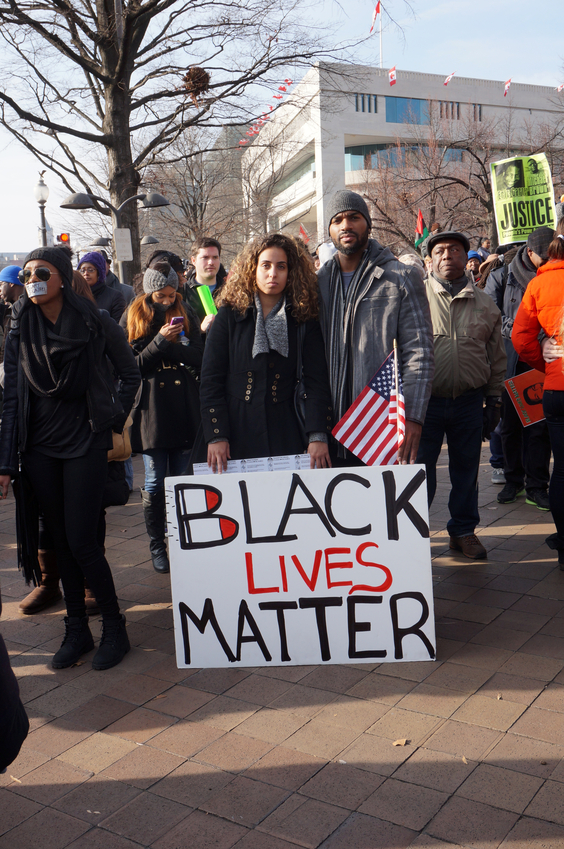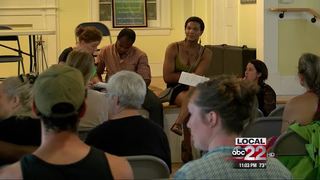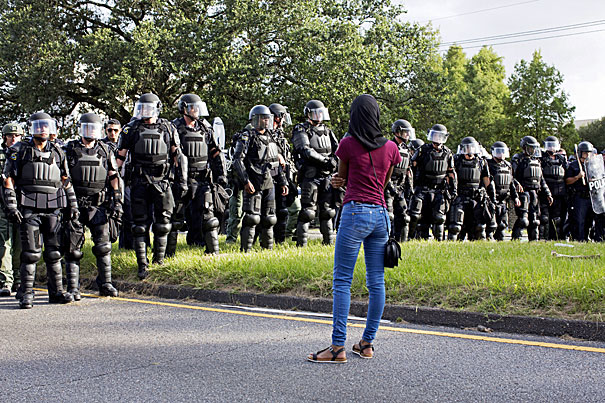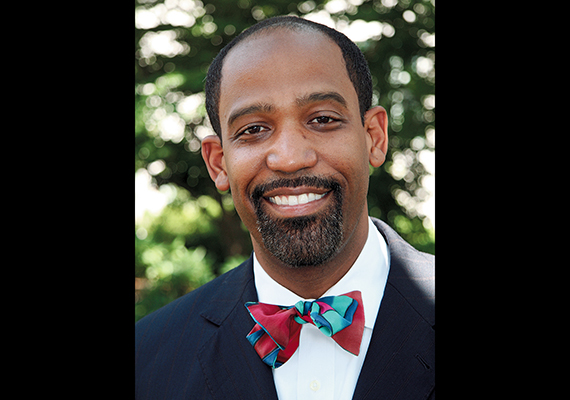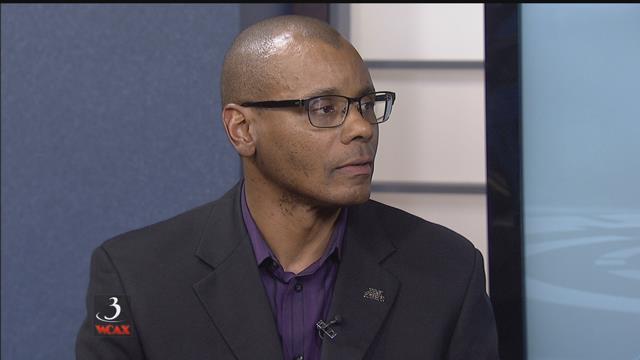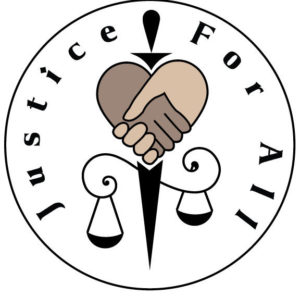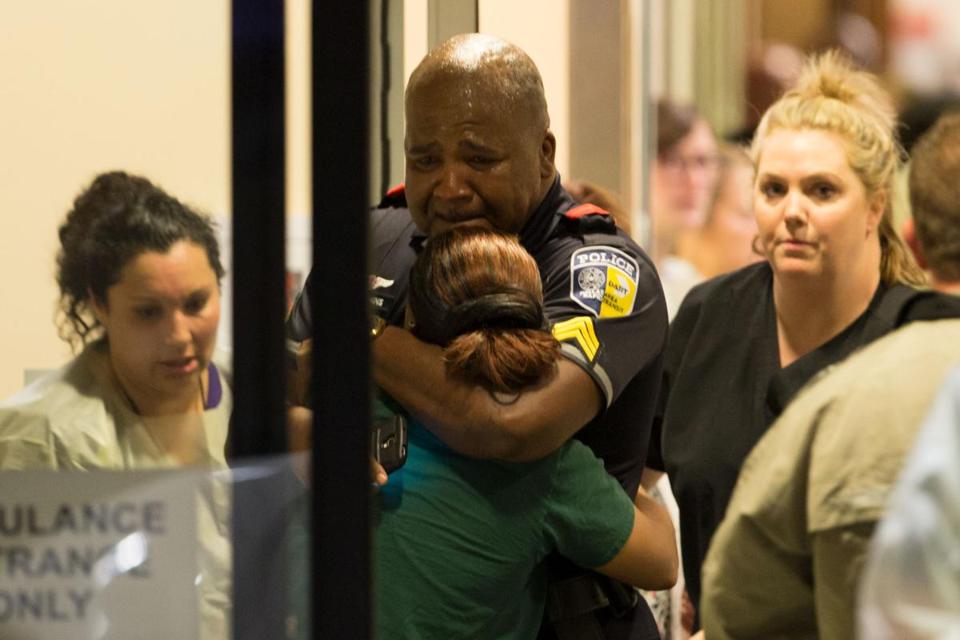On the #BlackLivesMatter Question | ACS
by Gregg Ivers, Professor of Government, American University @Givers1023
For much of white America, the phrase Black Lives Matter elicits thoughts of confusion, anger and resentment. Confusion, anger and resentment over the perception that the phrase, Black Lives Matter, somehow suggests that Black Lives Matter more than All Other Lives – meaning White Lives. All Lives Matter, so goes the rebuttal of some white folks, and Black Lives do not Matter any more or less than the lives of any other American citizen. Another demand for special treatment. Another demand that black folks get their own house in order rather than drawing attention to police brutality directed against unarmed black men, much of which, after we “place things in context,” somehow, after “careful review,” is almost always “justified.”
Among the many problems with this line of reasoning, there is one that stands out:
White America, you’re right . . . Black Lives have always Mattered. For almost four centuries, Black Lives have Mattered a great, great deal to white Americans. We would be a very different country without them. But just not in the way you would like to acknowledge.
Black Lives Mattered so much to the British that colonized North America that they brought their first black slaves to Jamestown, Virginia, in 1619, just a dozen years after they arrived. By 1860, shortly before the outbreak of the Civil War, there were approximately 4 million African slaves in the United States. Black Lives Mattered when white America needed black men to do the brute physical work one would associate with animals and later machines. Black Lives Mattered so much to Southern planters that, after tobacco reached its peak as a cash crop in the Upper South, about a million slaves were sold to the owners of cotton plantations in the Deep South, and forced to migrate to Georgia, Alabama, Mississippi and Louisiana, where the hell that awaited them was even more unimaginable than it had been in the tobacco producing states. The Lives of Black Women Mattered even more than black men. Black women gave birth to even more slaves, whether they wanted to or not, and functioned as sexual slaves to white men who, for reasons that only Sigmund Freud might understand, degraded their existence and yet had no problem raping and pillaging them as they pleased. A young male black slave was valued for the physical labor he could provide and nothing more. A young female black slave, especially a pretty one, was doomed to an existence that no civilized person would want to think about. And so we didn’t.
After the Civil War, Black Lives Mattered so much that the South, after the federal government reached an agreement with the Southern states to abandon Reconstruction and return the region to white rule, reinstituted a system of Neo-Slavery called Jim Crow. So valuable was the labor of black men and women that Southern planters, industrialists, politicians, law enforcement and para-military terrorist organizations like the Ku Klux Klan conspired to create a system of peonage and convict labor to dredge the swamps, pick the cotton, split the sugar cane, take care of the children, cook and clean for white folks, make the turpentine, crack the rocks, build the roads to take them to the glorious buildings that neo-slave labor largely built that rose up by the early 20th century and do anything else respectable white people believed was beneath them – and at the lowest possible cost. This system, in which blacks had no say, did not fall apart until the 1960s.
Black Lives Mattered in other ways, too. By the early 20th century, the art and music that emerged from black communities throughout the Southern United States expressing everything from despair to hope to joy to redemption soon became so popular among white Americans that record companies figured out a way to profit from it without really having to pay the artists that created it. Black music became the first genuinely indigenous form of American music, providing the foundation for the blues, jazz, gospel, the popular song, rhythm and blues and rock and roll and changed the way that music was understood and appreciated throughout the world. Yes, indeed, Black Lives Mattered to record and entertainment executives a great deal.
Black Lives soon began to Matter to lovers of collegiate and professional sports, so much so that, beginning in the late 1940s, the white guardians of professional baseball agreed to let one black man play with 149 other white men. Over the next several decades, black men rose to prominence in baseball, soon dominated football and, of course, almost completely took over the court in basketball. By the early 1960s, Black Lives Mattered so much to the NCAA that it began to permit black athletes to play football and basketball, the two highest revenue producing sports in collegiate athletics, with white athletes. The same Southern schools that took such great pride in preventing academically qualified black men and women from attending their whites-only universities decided that they were not going to tolerate a losing sports program, especially football. It became high time, as the phrase then went, “to get some niggers of our own.” There wasn’t a whole of lot of concern about actually providing these athletes with a proper college education – and there still isn’t. But allowing black athletes into historically whites-only institutions of higher education fattened the wallets of a great many people and continues to do so. By any measure, Blacks Lives Matter a great deal to our collegiate and professional sports complexes.
Although it may not seem like it, Blacks Lives have always Mattered in politics, especially in the South. That is why, until 1965, when the moral force of the civil rights movement forced the passage of the Voting Rights Act, Southern states did not let black people vote. In states like South Carolina, Georgia, Alabama and Mississippi, that would have doomed white supremacy because of the large – and in the case of South Carolina and Mississippi – majority black populations. So the powers-that-were either threatened, arrested, intimidated, raped and sometimes killed black men and women who registered to vote until the federal government made them stop. Of course, Black Lives Mattered in the Old South. Especially when it came to how white people could acquire and exercise political power.
Black Lives still Matter in politics, which is why the modern Republican Party has spent so much time and effort attempting to disenfranchise black voters, especially black men. Photo ID laws to combat a “voter fraud” problem that doesn’t exist. Making registration more and more complicated. Spurious messaging that preys on poor, semi-literate rural black voters by announcing false election times, closing traditional voting centers or anything else that will suppress the black vote. Yes, Black Lives Matter to the Republican Party, which is the reason it doesn’t want blacks to vote. Let’s take a moment to remember that blacks have only been second-class citizens for 51 years. Before then, they were subjects. When you cannot vote, you are not a citizen. Period.
Black Lives Matter to the “get tough on crime crowd” in Congress and state legislatures, and our penal system at all levels. The United States has created a mindless system of mass incarceration, taking black men and placing them and their most productive years behind bars. Mass incarceration also means that black men are politically the most impotent voting bloc in the country. Approximately one-third of black men are under the supervision of the criminal justice system, making them largely ineligible to vote. One-third. Combine the fact that voting eligible citizens are far less likely to vote when they feel the system does not serve them, and you magnify the problem to even higher degree. So not only does mass incarceration disproportionately destroy the lives of black men and black families, its sabotages the ability of black men to influence a political system that has demeaned and brutalized them – and for longer – like no other subset of American people. To our criminal justice system, yes, Black Lives Matter. A lot.
There are many more examples of how Black Lives have Mattered over the course of American history. But how Blacks Lives have Mattered to white America is very different than how black Americans believe that Black Lives Matter. And, if you listen very carefully, white America, you will hear that is what this movement is about. Black people want to show white America what it’s like to be black from their side of the camera. Black people want white people to see what happens to young, unarmed black men like Alton Sterling, Philando Castille, Trayvon Martin and Tamir Rice. Black people really want to know – and are willing to listen – why some white people really think George Zimmerman was justified in murdering Trayvon Martin. Black people really want to know if you think Philando Castille would have been killed in front of his family if he was white. Black people want to know why some white people believe that if I teach three black students in a class of 30 rather than just one or two that will somehow threaten your child’s ability to attend college and build a life. Black people really want to know why some white people are so afraid of them that, eight years ago, they invented a right that did not exist for the previous 209 years under the Constitution to own guns designed to do nothing more to kill other people, including school children, and, ironically, pierce the vests that police officers wear to protect themselves from you. Because you do know that white people are far more likely to kill a police officer than a black person? Right?
Black Lives Matter is not something to fear. Black Lives Matter is not an indictment of every single non-black person in the United States. Black Lives Matter is not demanding a revolution through armed force. Black Lives Matter is mad – this is not the Civil Rights Movement of Rosa Parks, Martin Luther King, Jr. and John Lewis – and wants white America to know why. Black Lives Matter is asking you to realize that even white people of goodwill continue to benefit from a system that white people created and have maintained for almost 400 years.
Black Lives Matter wants white people to know that Black Lives Matter just as much as White Lives Matter. And when that happens – when Black and White Lives Matter equally, then we will have reached the point where All Lives Matter. Until then, keep expecting to hear, whether white folks like it or not, why Black Lives Matter.
And don’t be afraid. Just listen.
